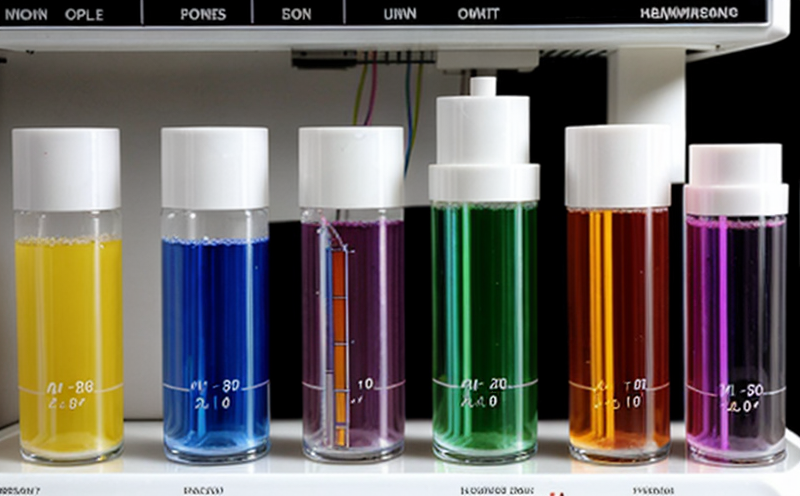EPA 8081 Organochlorine Pesticide Testing by GC
The EPA Method 8081 is a widely recognized and stringent protocol for the analysis of organochlorine pesticides in water, soil, and other environmental samples. This method leverages gas chromatography (GC) to separate and identify these persistent organic compounds with high precision.
The significance of this testing lies in its role in ensuring compliance with regulatory standards set by the EPA and other international bodies like ISO or EN for pesticide residues in foodstuffs, agricultural products, and environmental media. Organochlorine pesticides are particularly concerning due to their persistence in the environment, bioaccumulation in the food chain, and potential health risks.
Our laboratory adheres strictly to EPA Method 8081, which involves a rigorous sample preparation process followed by extraction using dichloromethane or another suitable solvent. The extract is then concentrated under reduced pressure prior to injection into the gas chromatograph equipped with an electron capture detector (ECD), which is particularly sensitive for detecting organochlorine pesticides.
For accurate results, it's crucial that samples are handled carefully to avoid contamination. Our experienced analysts ensure that each step of sample preparation and analysis adheres meticulously to the method’s guidelines. This includes thorough documentation of all procedures taken during extraction and analysis to maintain traceability and reliability.
The precision and accuracy achieved through this methodology make EPA 8081 a gold standard in organochlorine pesticide testing. The use of ECD provides excellent sensitivity, enabling detection even at very low levels of these pesticides. This capability is essential for meeting increasingly stringent regulatory requirements imposed by global agencies.
Our laboratory consistently delivers results that meet or exceed EPA standards, ensuring clients receive reliable and actionable data. By leveraging advanced chromatographic techniques, we provide robust evidence supporting compliance with environmental regulations and food safety standards.
Benefits
- Precision and Accuracy: The method ensures precise quantification of organochlorine pesticides in various matrices.
- Regulatory Compliance: Results align with stringent EPA guidelines, ensuring compliance with international standards.
- Sample Handling: Controlled sample preparation minimizes contamination risks, enhancing the integrity of test results.
- Sensitivity: Electron capture detection provides high sensitivity for low-level pesticide residues.
The method's robustness and reliability contribute significantly to maintaining the quality of agricultural products and environmental media. Compliance with EPA Method 8081 is crucial not only for regulatory purposes but also for safeguarding public health and the environment.
Eurolab Advantages
At Eurolab, we pride ourselves on delivering exceptional service across all our analytical services. When it comes to EPA 8081 Organochlorine Pesticide Testing by GC, here’s why you should choose us:
- Expertise and Experience: Our team comprises highly qualified analysts with extensive experience in environmental analysis.
- State-of-the-Art Equipment: We utilize cutting-edge gas chromatographs capable of delivering accurate results consistently.
- Comprehensive Support: From consultation to final reporting, our dedicated support staff ensures a seamless process for clients.
- Quality Assurance: Our processes are rigorously quality-assured to meet and exceed all relevant standards.
We understand the importance of timely delivery and accurate results. Eurolab is committed to providing reliable data that can be confidently used in decision-making processes.
Use Cases and Application Examples
- Agricultural Products: Testing for residues in crops like wheat, corn, and rice to ensure safety for consumption.
- Environmental Monitoring: Screening water sources for contamination by organochlorine pesticides used in agriculture or industry.
- Food Safety: Ensuring food products meet strict regulatory limits on pesticide residues before they reach the market.
- Forensic Analysis: Identifying past use of banned pesticides in soil samples from old agricultural sites.
In each case, our testing ensures compliance with international regulations and contributes to maintaining a safe environment for human health. Whether you’re an R&D engineer looking to verify the efficacy of new pesticides or a quality manager ensuring product safety, Eurolab’s EPA 8081 Organochlorine Pesticide Testing by GC is your trusted partner.





